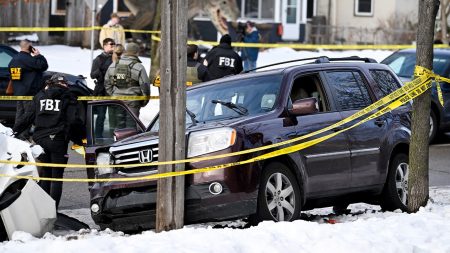Border Patrol Presence in Charlotte: A Weekend of Immigration Enforcement
The city of Charlotte experienced an unexpected wave of enforcement activity this weekend as Border Patrol agents arrived in the area, conducting searches for undocumented immigrants. The sudden presence of federal immigration officers has created uncertainty within local communities, especially among immigrant populations. While the agents have been actively carrying out their enforcement duties throughout the weekend, there has been no clear communication about the duration of their operations in Charlotte, leaving residents and local officials with questions about what to expect in the coming days.
The appearance of Border Patrol in Charlotte, a city located far from any international border, represents part of a broader pattern of interior immigration enforcement that has ebbed and flowed in intensity over recent years. These operations typically involve agents identifying, detaining, and potentially beginning deportation proceedings for individuals believed to be residing in the country without proper documentation. For many families in Charlotte’s diverse communities, the presence of these agents has created an atmosphere of apprehension, with some residents reportedly altering their daily routines or avoiding public spaces out of concern about potential encounters with immigration authorities.
Local community organizations have responded to the enforcement actions by activating support networks and sharing information about legal rights. Immigration advocates have emphasized that even undocumented residents have constitutional protections, including the right to remain silent and to speak with an attorney. Meanwhile, some community leaders have questioned the timing and purpose of this enforcement surge, particularly its impact on community-police relations that local departments have worked to build over years. The uncertainty about how long the operations will continue has made it challenging for support organizations to determine how to allocate their resources in response.
For the Border Patrol agents themselves, these operations represent one facet of their agency’s expanded interior enforcement mandate, which extends beyond the immediate border regions where the agency has traditionally focused its efforts. The agents’ work in cities like Charlotte involves complex coordination with other federal agencies and sometimes local law enforcement, though the specific targets and objectives of this particular operation have not been publicly detailed. The lack of transparency surrounding the duration and scope of their presence has contributed to the sense of unease in affected communities.
City officials have found themselves in a delicate position, attempting to balance cooperation with federal authorities while also addressing concerns from residents worried about the impact of these operations on their communities. Some local leaders have called for greater communication from federal agencies about their intentions and timeframes, arguing that sudden enforcement actions without clear public information create unnecessary fear and disruption. The situation highlights ongoing tensions between federal immigration enforcement priorities and local community needs, particularly in diverse urban centers like Charlotte.
As the weekend draws to a close, Charlotte residents remain watchful for signs of whether the Border Patrol presence will continue into the week ahead. For immigrant families, the uncertainty creates difficult decisions about work, school, and daily activities. For the broader community, the situation serves as a reminder of how national immigration policies manifest in tangible ways within local communities, affecting not just those directly targeted by enforcement but also the social fabric of neighborhoods and cities. Without official clarification about the expected duration of these operations, Charlotte’s communities can only watch, wait, and continue to support those most vulnerable to the effects of intensified immigration enforcement.








